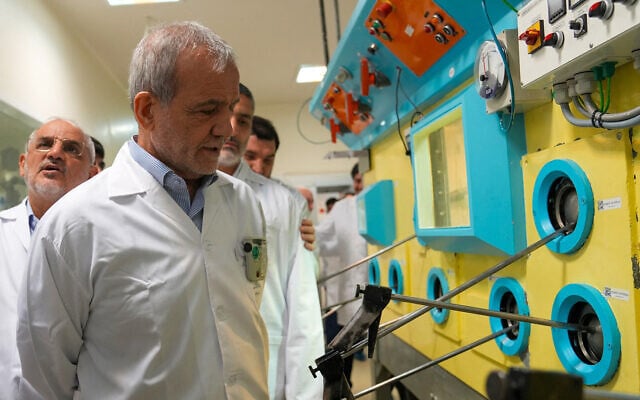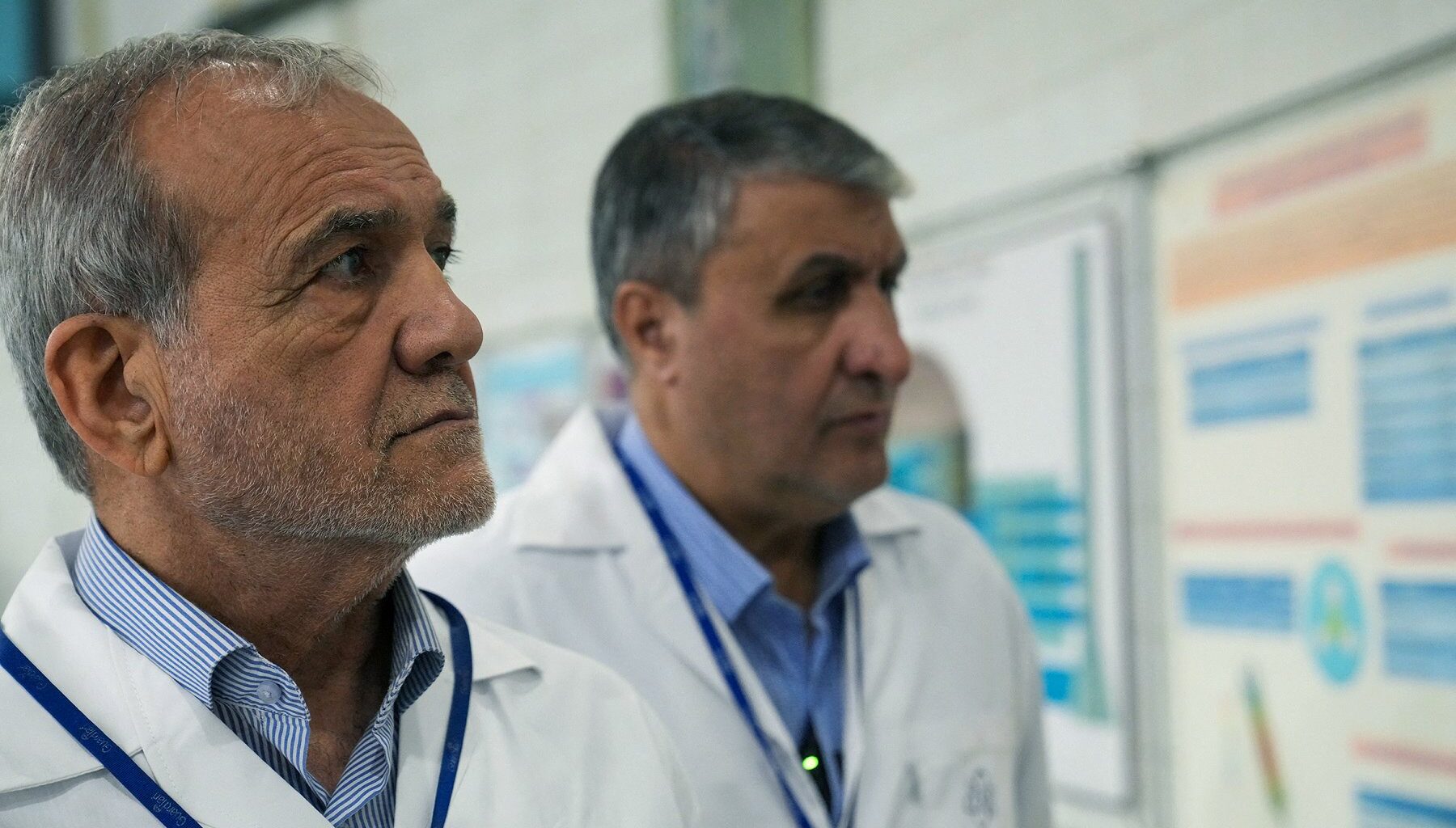TEHRAN, Iran — Iranian President Masoud Pezeshkian blamed his own government for rising consumer prices Thursday, boosting pressure on the managers of the sanctions-hit economy.
The annual inflation rate stood at nearly 49 percent in September, according to Iran’s official statistics center.
Pezeshkian said the country’s inflated bureaucracy was fueling inflation.
“We, the government, are the cause of inflation,” said Pezeshkian during a speech in the western Kurdistan province.
“We have bloated the government. Everyone has taken a position as a chief, manager or something similar,” he noted, adding that efforts were underway to cut spending and curb inflation.
Iran’s economy has been crippled by sanctions imposed by the United States and Western countries over alleged efforts by the Islamic Republic to build a nuclear weapon.

Iranian President Masoud Pezeshkian visiting the Atomic Energy Organization of Iran, in Tehran, November 2, 2025. (Handout / Iranian Atomic Organization (IAEO) / AFP)
Iran has consistently denied seeking to acquire nuclear weapons. However, it enriched uranium to levels that have no peaceful application, obstructed international inspectors from checking its nuclear facilities, and expanded its ballistic missile capabilities.
The country’s economy has come under further strain since a 12-day war in June, during which the United States briefly joined Israel in striking Iranian nuclear facilities. Israel started the war citing Iran’s nuclear and ballistic missile programs, saying they posed an imminent, existential threat to the Jewish state.
The war followed two months of nuclear talks between Tehran and Washington that failed to produce a diplomatic breakthrough.
Iran has more than 2.4 million civilian government employees, according to the Public Administration and Recruitment Organization.
The figure excludes “military and law enforcement personnel or staff at the ministries of intelligence, defense and armed forces logistics, among others.”
Pezeshkian said the state’s budget deficit was worsening the economic strain and urged officials to cut unnecessary spending to ease the financial pressure on citizens.


